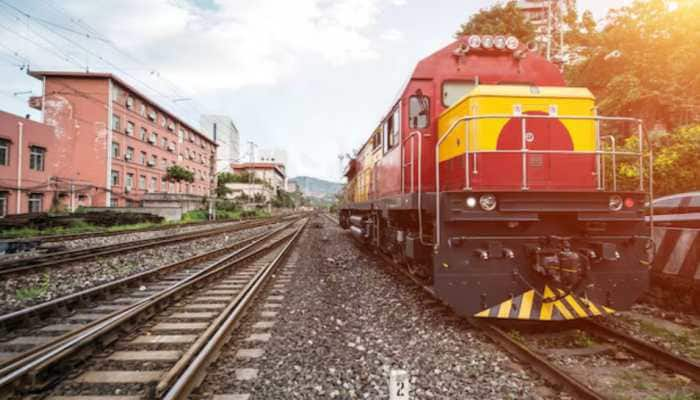UN suspended aid shipments into Syria after convoy attack; John Kerry says ceasefire 'not dead'
The United Nations suspended all aid shipments into Syria on Tuesday.
Trending Photos
)
Geneva/Beirut: The United Nations suspended all aid shipments into Syria on Tuesday after a deadly attack on a convoy carrying humanitarian supplies, while Washington, expressing outrage at the attack, said a week-old ceasefire was not yet dead.
The attack, described by the United Nations, Red Cross, Western countries and rescue workers on the ground as an air strike, drew condemnation from much of the world.
Russia and the Syrian government denied that their air forces were responsible for destroying a convoy unloading aid. Moscow presented an entirely different explanation, saying it believed the convoy had not been struck from the air at all but had been destroyed by fire, and suggesting that rescue workers who filmed the aftermath were somehow to blame.
The Syrian Red Crescent said the head of one of its local offices and "around 20 civilians" were killed. Other death tolls differed.
The incident appeared likely to deliver a mortal blow to the ceasefire, the latest attempt to halt a war now in its sixth year, which has killed hundreds of thousands of people and made a mockery of all previous peace efforts.
Still, US Secretary of State John Kerry, who personally negotiated the truce during months of intensive diplomacy with Russia despite scepticism from other senior figures in the US administration, told reporters, "The ceasefire is not dead."
He spoke after emerging alongside Russian Foreign Minister Sergei Lavrov from a meeting of foreign ministers of 20 countries, gathered to discuss Syria in New York.
The United Nations peace envoy, Staffan de Mistura, said the ceasefire was in effect until its co-sponsors Moscow and Washington declared it over, and neither had done so at Tuesday`s meeting.
The state department said the ministers agreed at the meeting of the Syria Support Group to continue pursuing the ceasefire under the US-Russian plan.
Syria`s army had declared the initial ceasefire period over on Monday, hours before the attack on the convoy.
US officials acknowledged there might no longer be any agreement left to salvage. If the truce is abandoned, it would most likely wreck the last hope of any breakthrough on Syria before the administration of President Barack Obama leaves office in January.
The ceasefire was meant to halt all fighting and allow aid to reach besieged areas, at a time when pro-government forces, with Russian and Iranian military support, are in their strongest positions for years and civilians in many rebel-held are completely cut off from food and medical supplies.
"As an immediate security measure, other convoy movements in Syria have been suspended for the time being pending further assessment of the security situation," Jens Laercke, a UN humanitarian aid spokesman, told a briefing.
The attack on the convoy of the Syrian Arab Red Crescent destroyed 18 of 31 trucks.
"If this callous attack is found to be a deliberate targetting of humanitarians, it would amount to a war crime," U.N. aid chief Stephen O`Brien said in a statement. Peter Maurer, president of the International Committee of the Red Cross (ICRC) called it a "flagrant violation of international humanitarian law".
Among those killed was the head of the Syrian Red Crescent for the area, Omar Barakat. The team on the ground was "in shock," said ICRC`s Middle East chief, Robert Mardini.
Washington was "outraged", said US State Department spokesman John Kirby. "The destination of this convoy was known to the Syrian regime and the Russian federation and yet these aid workers were killed in their attempt to provide relief to the Syrian people," he said in a statement.
The contrast with Moscow`s version of the events shows how difficult it has been for the sponsors of opposing sides to agree on what is taking place on the ground.
"We have studied video footage from the scene from so-called `activists` in detail and did not find any evidence that the convoy had been struck by ordnance," Igor Konashenkov, a spokesman for Russia`s Defence Ministry said in a statement.
"There are no craters and the exterior of the vehicles do not have the kind of damage consistent with blasts caused by bombs dropped from the air."
He said the damage to the convoy visible in footage was caused by its cargo catching fire. It had occurred at the same time as militants from the group formerly called the Nusra Front had started a big offensive in nearby Aleppo, he said, appearing to point the finger at rescue workers from a group called the "White Helmets" who filmed the aftermath.
"Only representatives of the `White Helmets` organisation close to the Nusra Front who, as always, found themselves at the right time in the right place by chance with their video cameras can answer who did this and why."
The United Nations and Red Crescent spoke of relentless air strikes they were powerless to stop.
"The UN in Syria was informed of the air strikes as they unfolded," the UN Syria and regional humanitarian coordinators Massimo Diana and Kevin Kennedy said in a joint statement.
"Despite our efforts and communications with parties to the conflict, further air strikes continued throughout the night, hampering efforts to reach and attend to the wounded."
Hussein Badawi, head of the White Helmets in the town, said he was 100 metres (yards) from the aid depot when the attack took place and was injured by shrapnel in the hand.
"There were fires, martyrs, wounded people. We were able to pull out four survivors and five dead bodies at first," Badawi said. "The bombardment was continuous, continuous. The rescue teams weren`t even able to work. Those who arrived in ambulances couldn`t come in."
The ceasefire deal was a gamble on unprecedented cooperation between the United States and Russia, despite trust between the two Cold War-era foes being at its lowest point for decades.
The deal called for Washington and Moscow, which support opposite sides in the war between Assad`s government and insurgents but are both fighting against Islamic State militants, to eventually share targetting information, the first time they would have fought openly together since World War Two.
Following the attack, a senior Obama administration official said of the ceasefire: "We don`t know if it can be salvaged."
"At this point the Russians have to demonstrate very quickly their seriousness of purpose because otherwise there will be nothing to extend and nothing to salvage," the official, who spoke to reporters on condition of anonymity, added.
Stay informed on all the latest news, real-time breaking news updates, and follow all the important headlines in india news and world News on Zee News.
Live Tv







)
)
)
)
)
)
)
)
)
)
